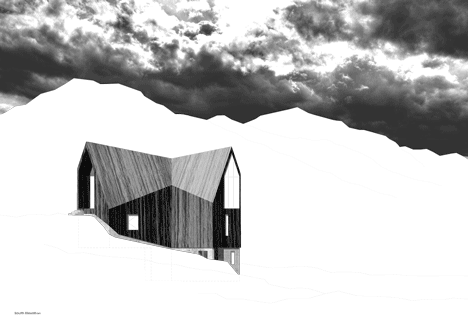House at Camusdarach Sands by Raw Architecture Workshop has a kinked facade
This house in the Scottish Highlands by London office Raw Architecture Workshop is partly buried into its sloping site and features a kinked plan that directs views towards the sunrise and sunset. (+ slideshow).
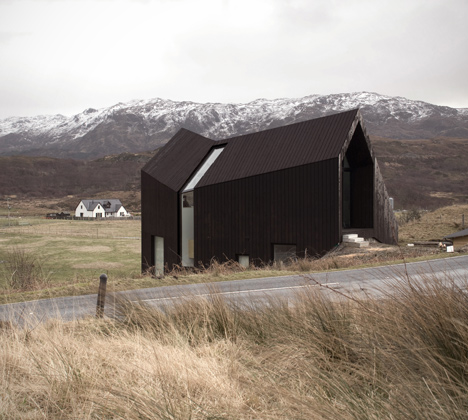
Located on a patch of former grazing land on Scotland's rugged northwest coast, the house was designed by Raw Architecture Workshop for a young couple who wanted to optimise views of the sun rising behind mountains in the east and setting over the islands in the west.
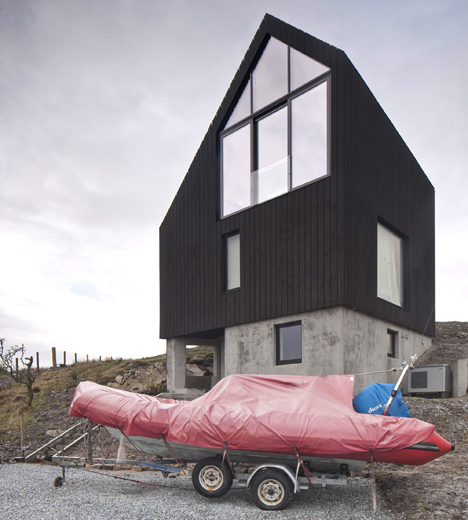
"During an initial visit we pinpointed specific axes that would provide [the] best views from the site," said the architects. "These were translated into physical models and the symmetrical, splayed and cranked plan was derived."
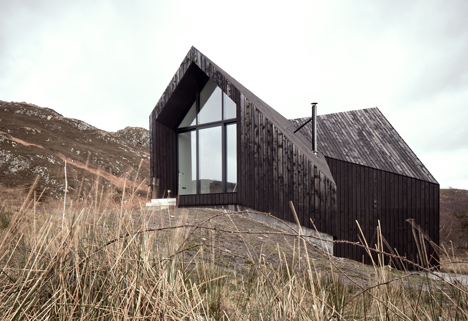
Starting from the simple gabled form of typical Highland cottages, the architects created a building that provides the space required by a modern family and twisted the plan to direct one end towards the mountains and the other towards the islands.
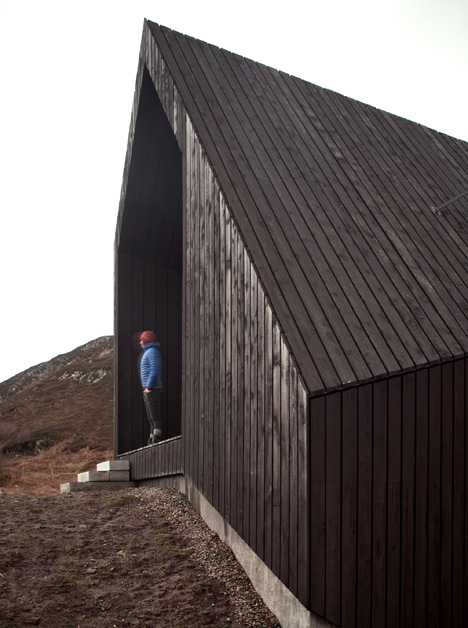
The gable ends were widened to create space for expansive windows and the roofline lowered in the middle to reduce the building's mass and exposure to the harsh climate.
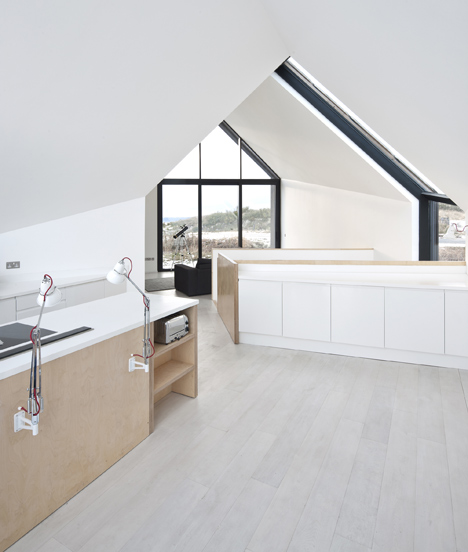
Burying the exposed concrete base into the hillside also protects it from the weather and allows the surrounding soil to provide natural insulation.
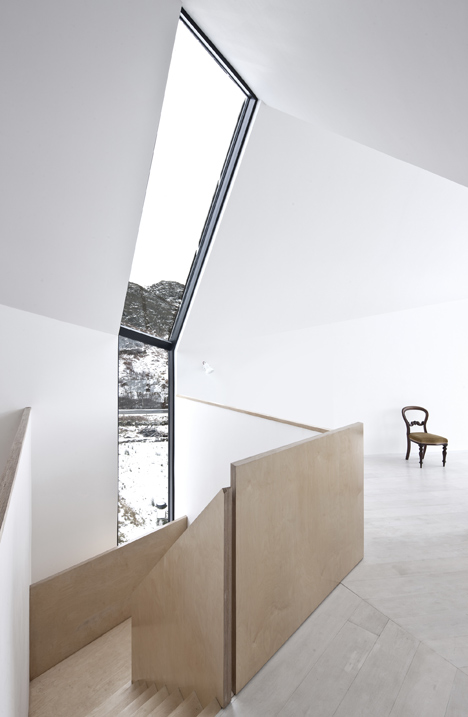
Wild grasses that will gradually grow up around this submerged section will help to ground the house in its surroundings and the architects chose a black stained timber finish for the exterior surfaces to echo "the characteristics of the peat, gorse and stormy skies."
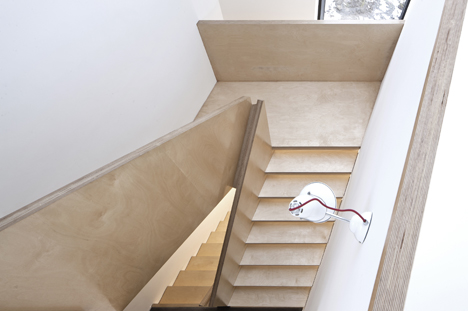
To make the most of the spectacular views, the main living spaces are arranged on the upper storeys, with the basement containing an entrance hall, boat room and spare bedroom.
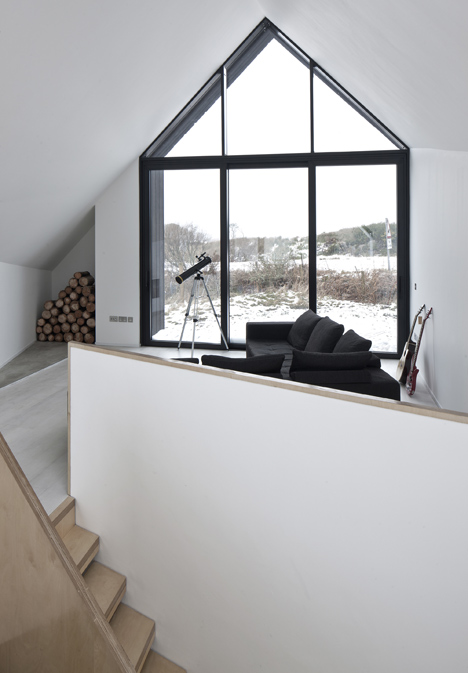
"There is a clear distinction in internal arrangement of space and function across three levels denoted by changes in light levels, scale of spaces, floor to ceiling heights and materials," said the architects.
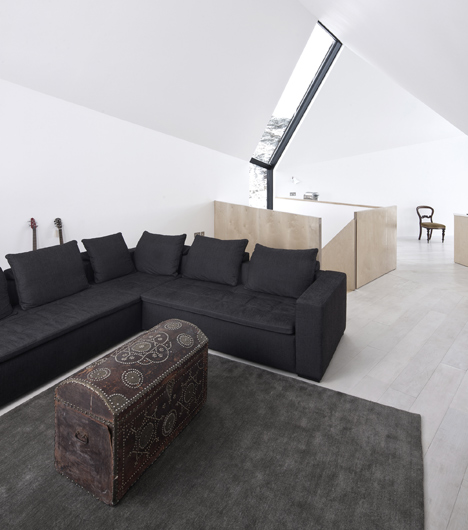
From the dark entrance area, a birch ply staircase leads up to a first floor containing three more bedrooms and a hallway incorporating library shelving.
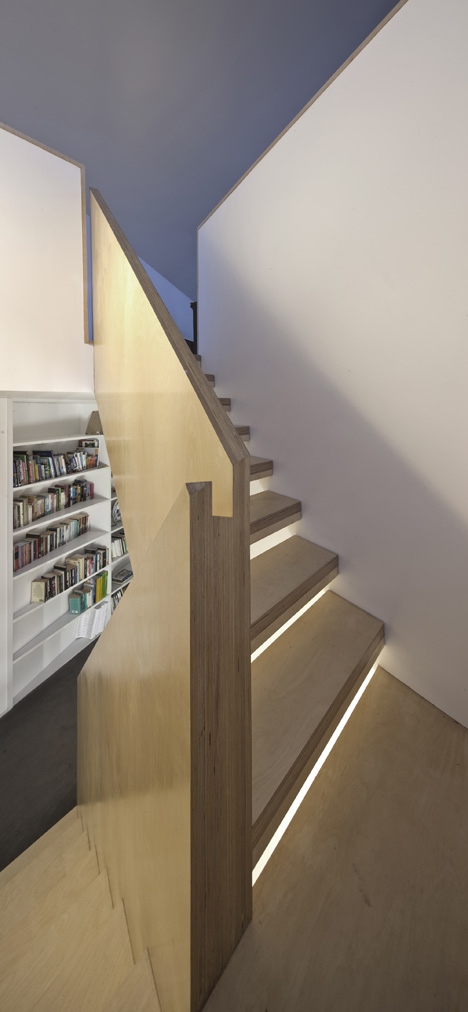
The staircase is filled with natural light from a long vertical window and continues to the open-plan upper floor containing the main living space, which is connected to a kitchen and dining area.
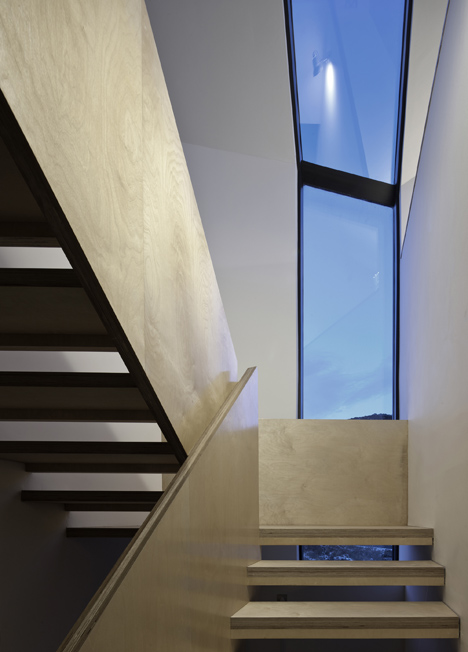
In this space the building's pitched ceiling results in a complex series of angled surfaces as it kinks in the centre before framing windows in the gabled ends.
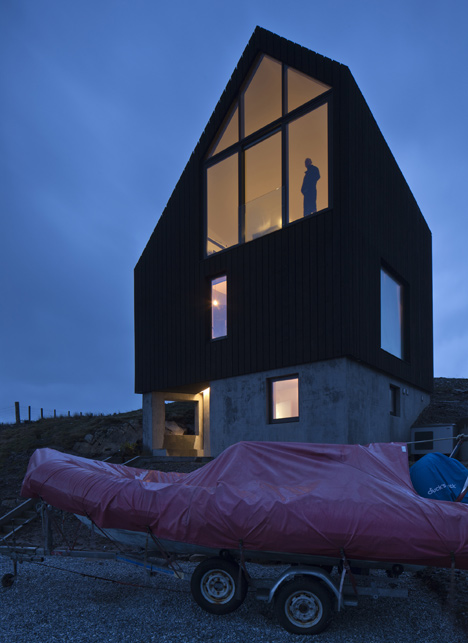
Pale wooden floors and cabinetry add to the light and bright feel of this room, which opens onto a narrow covered terrace with steps leading to the garden at the higher end of the site.
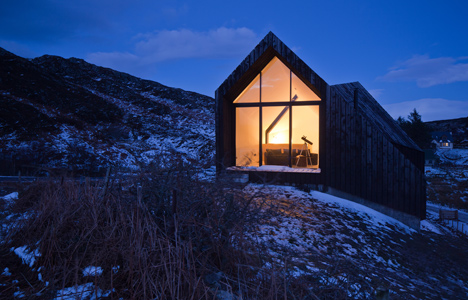
Photography is by David Barbour.
Here's a description from the architect:
House at Camusdarach Sands, Scotland
Over 2000 years ago the occupants of Skara Brae, Orkney used locally sourced materials to build partially submerged dwellings providing thermal insulation and protection from the storm battered climate. The weather definitely hasn’t improved, but for the most part the buildings remain intact.
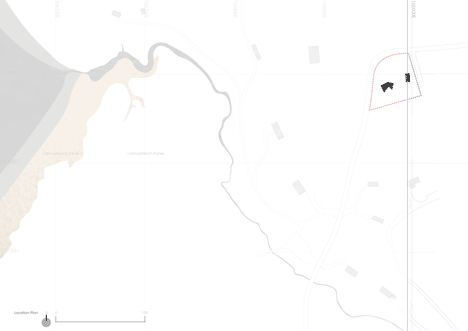
Incorporating these principles, Raw Architecture Workshop has completed a new build house on steeply sloping former rough grazing land at Camusdarach Sands.
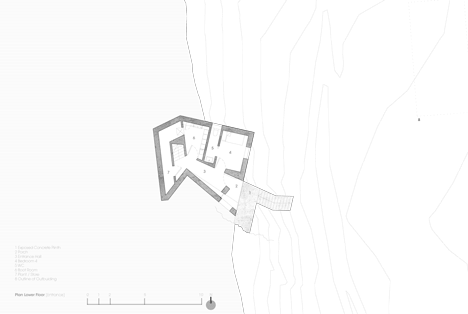
The Clients, a young couple already living and working in this isolated location, were keen that we develop the proposals to capture the spectacular sun rise views over the mountains and sun set behind the islands. Given the topography of the site our early response was to locate the living spaces on the upper portion of the plot, with sleeping accommodation and entry level stacked below.
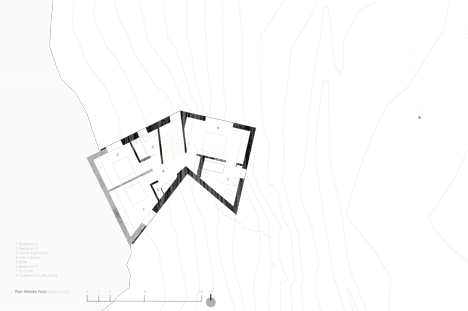
During an initial visit we pinpointed specific axis that would provide best views from the site. These were translated into physical models and the symmetrical, splayed and cranked plan was derived.
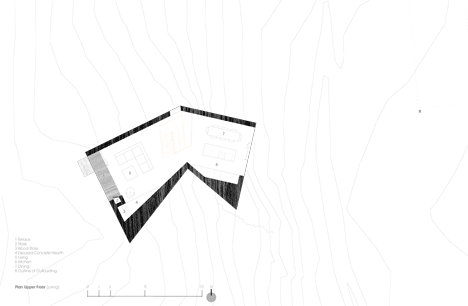
Similar forms were also explored in the section to reduce the visual mass, significantly improve the field of view from opposite ends of the space and increase daylight levels, which are critical in mid-winter around this line of latitude. In time the wild grasses will re-grow around the building to further reinforce the idea of a building built into, and not on top of, the hill.
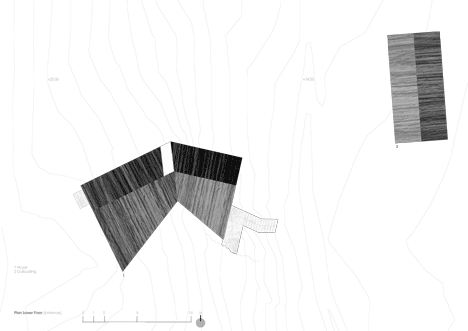
Construction is low tech consisting of an exposed concrete base sitting beneath the more expressive timber frame superstructure. There is a clear distinction in internal arrangement of space and function across 3 levels denoted by changes in light levels, scale of spaces, floor to ceiling heights and materials.
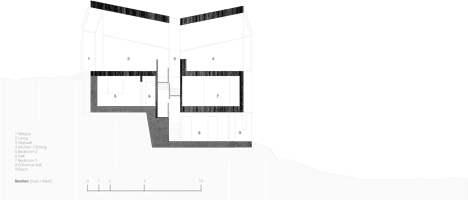
Entrance is at the lower level into a darker, utilitarian concrete bunker. As you progress up through the building, via the birch ply staircase, spaces enlarge, daylight levels and ceiling heights soar, and materials are characterised by a lighter finish. The angular form of the building is reflected in the black painted cedar internal door handles and handrail detail of the plywood balustrade.
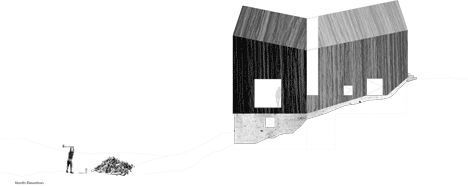
We were conscious that connection to the garden would be critical for a rural house and felt it important that you were able to step out of the main living spaces directly onto the landscape. This factor controlled the balance between elevating the top floor sufficiently to see the islands and keeping it low enough so that you were only 3 steps from the garden.
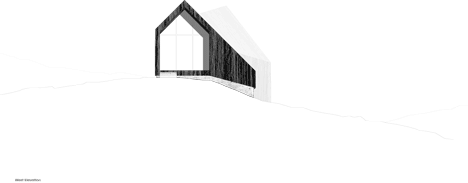
Environmental considerations vary in scale and type, from building position and orientation, local labour, skills and materials, to the inclusion of an air source heat pump and super insulation to provide a U-Value of 0.15 [W/m2k] to walls and roof.
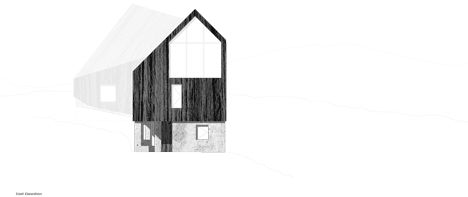
The final external colour was much debated and in the end black was chosen to tune into the characteristics of the peat, gorse and stormy skies. Perhaps, in a few years, we might try a deep red…
